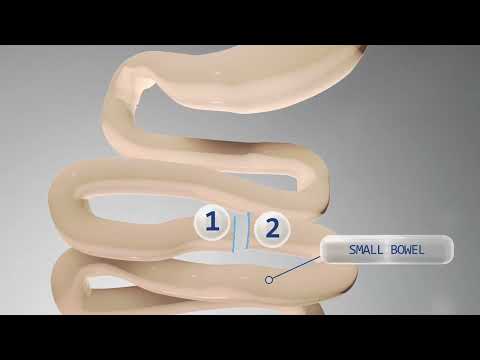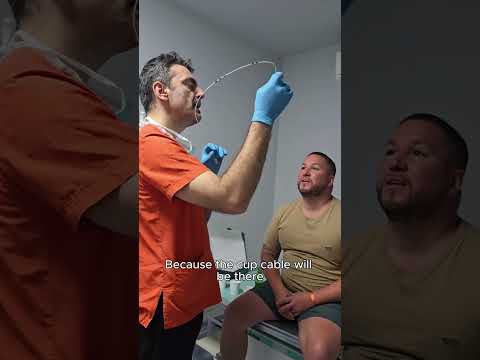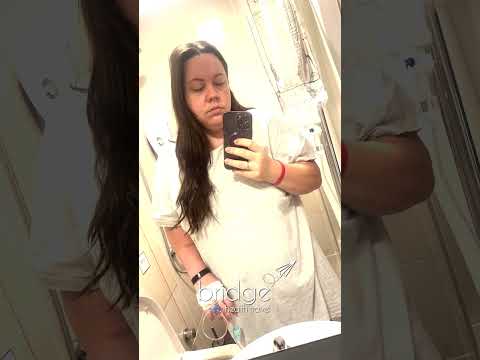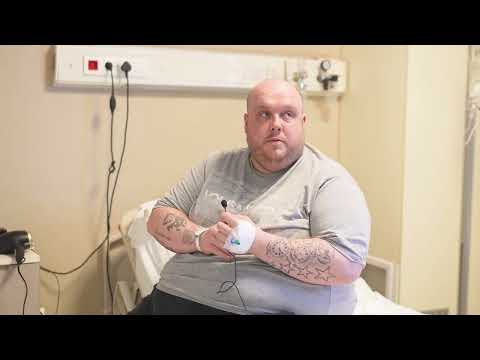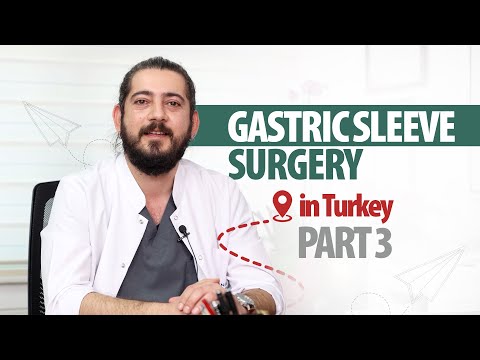Before and After Gastric Sleeve Surgery in Antalya, Turkey!
Calculate Your Cost / Price
Before and After Gastric Sleeve Surgery in Antalya, Turkey!
Gastric Balloon in Antalya, Gastric Balloon Prices, Gastric Balloon Treatment Antalya Turkey
What should I do for gastric balloon treatment in Turkey?
Which hospital is best for gastric balloon in Turkey?
-
How to prepare for gastric balloon?
Before insertion of the gastric balloon, you must fast from food and drinks for 12 hours. When the gastric balloon is to be removed, you must start on a fluid-only diet 48 hours beforehand. This means no solid food at all.
-
How do you qualify for gastric balloon?
Patients may be eligible for a gastric balloon if they have a BMI between 30 and 40, and they haven't been able to lose weight and keep it off with other weight-loss plans.
-
What to expect when you get a gastric balloon?
Pain and nausea affect about one-third of people soon after insertion of an intragastric balloon. However, these symptoms usually only last for a few days after balloon placement. Although rare, serious side effects may occur after intragastric balloon placement.
-
What do I eat in a day with a gastric balloon?
Continue to eat 3 regular meals each day and try not to leave more than 3-4 hours between meals.
EAT FIRST -Protein (meat, fish, poultry, eggs, beans, pulses)
EAT SECOND- Vegetables and salad.
EAT LAST - Carbohydrates (bread, rice, potato, pasta, grains)
-
How to sleep with a gastric balloon?
Once you have passed the initial few weeks following the gastric balloon procedure, you should be able to sleep normally. This means you can sleep on your back or on your side. Sleeping in these positions allows your body's natural digestive processes to function while you rest.
-
Can you eat bread with a gastric balloon?
Avoid anything doughy such as bread or chapattis as these can stick to the balloon. You can gradually start to include the 'caution foods'. Continue to drink between meals only and avoid sugary or fizzy drinks as before. Still aim for about 2 litres (3½ pints) each day.
-
How quickly do you lose weight with gastric balloon?
Losing Weight with a Gastric Balloon
You are likely to lose weight quickly, especially in the first three to four months of living with the gastric balloon. Typically, people lose about 10 to 15% of their body weight by the time the six-month program is complete.
-
Can you drink coffee with a gastric balloon?
This includes any fluid such as water, juices, milk, squash and soups. Tea and coffee are also allowed though should not be your main source of fluids. You should avoid drinks with too much gas. Fizzy drinks can cause a great deal of discomfort with a gastric balloon.
-
Can I fly with a gastric balloon?
Yes. Flying with a gastric balloon is perfectly fine. It will not burst or rupture on a commercial flight. Once you've recovered from the initial symptoms of having a placement you will be able to fly and enjoy your holiday as normal.
-
How long do you feel sick after gastric balloon?
Nausea and vomiting are very common in the first seven to ten days after gastric balloon insertion and this is simply because your stomach isn't used to having it there.
-
Is gastric balloon a good idea?
The gastric balloon procedure may be particularly useful for people considered too overweight to undergo vital surgery. The use of the balloon to successfully reduce weight prior to surgery can also help to reduce the risks associated with surgical procedures on overweight patients.
-
What happens if the gastric balloon pops?
Bowel obstruction and perforation are the most significant concerns if your balloon bursts. Symptoms such as severe abdominal pain, vomiting, or difficulty swallowing should never be ignored, as they may indicate a burst balloon.
-
Do you feel hungry after gastric balloon?
Approximately 90% of people have no appetite at all after the insertion of an intragastric balloon. In the first 10 days you will be restricted to a liquid diet, but most people do not feel hungry!
-
Who cannot have a gastric balloon?
Who is not a candidate for gastric balloon? Gastric balloon is not qualified to pregnant women, long-term cortisone users, those who are undergoing cancer treatment or those who have recently had cancer treatment.
-
How painful is a gastric balloon?
About one-third of patients have pain, nausea or discomfort in the first few days. Over-the-counter pain medication usually helps. Weight loss: You may not feel hungry the first couple of weeks, leading to rapid weight loss.
-
Can your body reject a gastric balloon?
It is important to remember that a BIB gastric balloon is a foreign object, meaning your body will attempt to reject it.
-
What is the age limit for gastric balloon?
To be eligible for gastric balloon, you must: Be at least 13 years old. Have a body mass index (BMI) ≥30 and ≤40 kg/m2. Have tried other weight-loss programs, such as a supervised diet or exercise regimen.
FQ About Gastric Balloon Clinic in Antalya / Turkey
A bowel doctor, another term for a gastroenterologist, focuses on the intestines and related organs. Patients may seek care from a bowel doctor for conditions like Crohn's disease, ulcerative colitis, diverticulitis, or bowel cancer. They also manage complications that arise in the bowel following surgeries like the Roux-en-Y gastric bypass or gastric sleeve.
Gastric sleeve surgery in Turkey is one of the most popular weight loss surgery treatments. This bariatric surgery treatment is popular as it is one of the more effective treatments for weight loss.
Cancer of the Gastrointestinal Tract (GIT) includes cancers that affect the stomach, intestines, esophagus, colon, liver, and pancreas. Symptoms vary depending on the type of cancer but may include weight loss, blood in the stool, or persistent abdominal pain. Early detection is crucial for improving survival rates, and treatment options range from surgery to chemotherapy and radiation.
Mini gastric bypass surgery in Antalya has gained attention for being an effective alternative to traditional gastric bypass. Patients who undergo the procedure in Turkish clinics often report high levels of satisfaction, especially regarding the rapid weight loss and improvement in obesity-related health conditions such as type 2 diabetes. Many reviews highlight the professionalism of Turkish healthcare providers, the modern facilities, and the personalized care packages that often include everything from... +More
A tummy specialist is a colloquial term for a gastroenterologist, a doctor specializing in diseases affecting the digestive system. Patients with stomach pain, bloating, or gastrointestinal issues like ulcers or acid reflux often seek their expertise for diagnosis and treatment.
those complexities in mind, a common definition of failure is loss of less than half of a person’s excess weight (%EWL is excess weight carried above a Body Mass Index of 25kg/m2). Most of my patients express disappointment if they’ve only had 50% excess weight loss, but the reality is that even surgery has limited power to assist a person to manage their weight.Additionally, all surgeries are most effective in the first five years, and less effective after that. And obtaining reliable data... +More
Common VSG side effects include nausea, vomiting, acid reflux, and constipation due to the smaller stomach size. Nutrient deficiencies, like vitamin B12 and iron, may occur if patients don't follow their prescribed supplements. Long-term complications can include weight regain or the development of gastroesophageal reflux disease (GERD).
Lap band surgery, also known as gastric banding, is a type of weight-loss surgery where a band is placed around the upper part of the stomach to create a small pouch. This restricts food intake, leading to weight loss. In the UK, lap band surgery is available through both private healthcare providers and the NHS. The procedure has become less common compared to other forms of bariatric surgery, such as the RNY or sleeve gastrectomy, due to its lower success rates and higher complication risks.
Saxenda Treatments in Antalya and TurkeyWhat is Saxenda?Saxenda is an FDA-approved medication for chronic weight management. It mimics a hormone that targets areas of the brain responsible for regulating appetite.Availability in Antalya and TurkeySaxenda is widely accessible through certified pharmacies and weight loss clinics. Many facilities in Antalya specialize in tailored weight loss plans that include Saxenda.Costs of Saxenda in Antalya and TurkeyIn Antalya: The cost for Saxenda treatment typically ranges... +More
After undergoing bariatric surgery, many patients experience some difficulties adjusting to their new lifestyle. This is to be expected. Life after bariatric surgery involves a lot of changes to your diet, your activity level, and your body. This can lead to mood swings, irritability, and even low moods
A growth in the stomach can range from benign polyps to malignant tumors. Common symptoms include stomach pain, bloating, and nausea. Early detection through endoscopy or imaging is critical, as the treatment depends on whether the growth is benign or cancerous. Surgery or medication may be necessary to remove or shrink the growth.
Pages
-
£ 1580£ 1450GASTRIC BALLOON PROCEDURE PACKAGE
Give a call to learn more about what’s included and to come up with a tailored plan if you need unique accommodations that are not listed below.
- Airport
- Hotel
- Hospital transfer
- The balloon is placed via endoscopy, the procedure takes 15-20 minutes and you are discharged after 2-3 hours. It is enough to stay here for 1 night.
- Blood samples & x-rays
- 5 year follow up
-
£ 2750£ 2550GASTRIC SLEEVE PACKAGE
GASTRIC SLEEVE PACKAGE COST TURKEY / ANTALYA
Give a call to learn more about what’s included and to come up with a tailored plan if you need unique accommodations that are not listed below.- Airport
- Hotel
- Hospital transfer
- 4 day stay at hospital
- Blood samples & x-rays
- 5 year follow up
-
£ 3100£ 2900MINI GASTRIC BYPASS PACKAGE
MINI GASTRIC BYPASS PACKAGE TURKEY
Give a call to learn more about what’s included and to come up with a tailored plan if you need unique accommodations that are not listed below.- Airport
- Hotel
- Hospital transfer
- 4 day stay at hospital
- Blood samples & x-rays
- 5 year follow up







